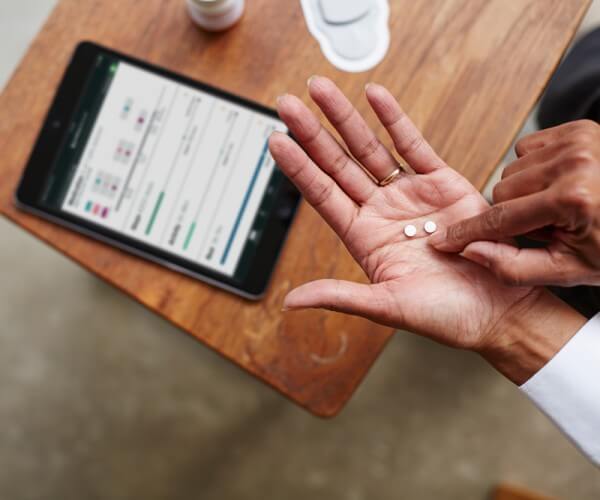Proteus develops digital oncology medicines for cancer patients
Proteus Digital Health, Fairview Health Services, and the University of Minnesota Health are working together to develop digital oncology medicines to support treatment regimens and improve outcomes.
Most recently, Proteus Digital Health Inc. together with Fairview Health Services, and the University of Minnesota Health announced that they have been developing the digital oncology medicines that the cancer patients would be using for the first time to upkeep their treatment programmes and get better outcomes. This new development is intended to help patients finish their oral chemotherapy rounds as oncologists get new insights into their patients’ treatment progress and complete health status. Proteus, Fairview, and the University of Minnesota Health revealed their care model for digital oncology medicines and an association with the University of Minnesota at the ASCO-GI 2019 Gastrointestinal Cancers Symposium in San Francisco.
University of Minnesota Physicians oncologist/haematologist Dr. Edward Greeno said that Proteus has provided them with a great opportunity to offer better care management for patients getting oral oncolytic and take it further. He further added that Proteus’ digital medicine technology has provided a more straight connection with the patient. It helps them in achieving a lot of things that take place when a patient is actually visiting a clinic for infusions, but without them actually coming to visit in person. It is also beneficial as they can learn more about how patients are doing at home with their treatment program.
Proteus created the care model for oral digital oncology medicines with University of Minnesota Health and Fairview, which is the world’s first health system that prescribes digital capecitabine.
It is a usual chemotherapy drug which is prescribed with the Proteus ingestible sensor. At present, it is being used to help treat the colorectal cancer patients at 3rd and 4th stage.
Program Specifics
One of the main benefits of digital medicines program is that it helps augment treatment regimens while also keeping patients’ privacy. The program has been designed in such a way that it collects, records, and shares details about the time, dosage, and type of oral chemotherapy medication taken by the patients and it does all this in a very secure manner.
Along with this information, other details like data on rest, activity, and resting heart rate can be shared with the patients’ physicians, pharmacists, or caretaker, but only after patients have given their consent. And the best part, only the patient and their designated individuals can access the details and that too on a protected, mobile-friendly platform which has been developed by Proteus.
Digital oral oncolytic medication registry
In order to collect more real-life understanding and data from cancer patients who are using digital medicines, Proteus is introducing a digital oral oncolytic medication registry. This study will accumulate data from several different places covering educational, medical centers to community practices, urban and rural facilities.
Patients from the sites participating in the study will be prescribed digital capecitabine so as to help them with the treatment. Then the data brought together from the study will be shared with best practices through several sites, which will allow a more in-depth data and outcome analysis.
Working with Fairview Ventures
Paul Morales, PharmD, BCOP, Fairview Infusion Pharmacy manager at the University of Minnesota Health Clinics and Surgery Center, said that with the costs, complications, and harmful risks that come with oral chemotherapy, digital oncology medicine is an exhilarating step towards improving cancer care.
It will help pharmacists in identifying the patients who might be facing difficulty in taking their medications correctly. Moreover, patients will be able to get more involved in managing their medication and treatment.
Image credit: www.hitconsultant.net

















